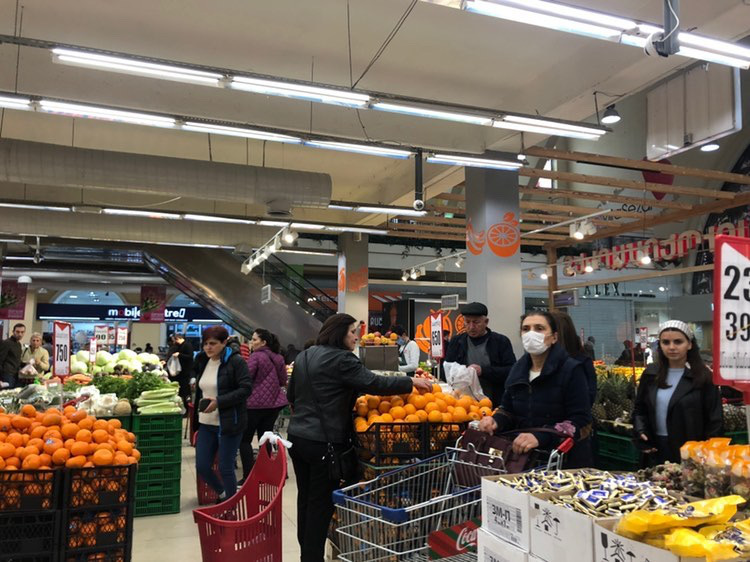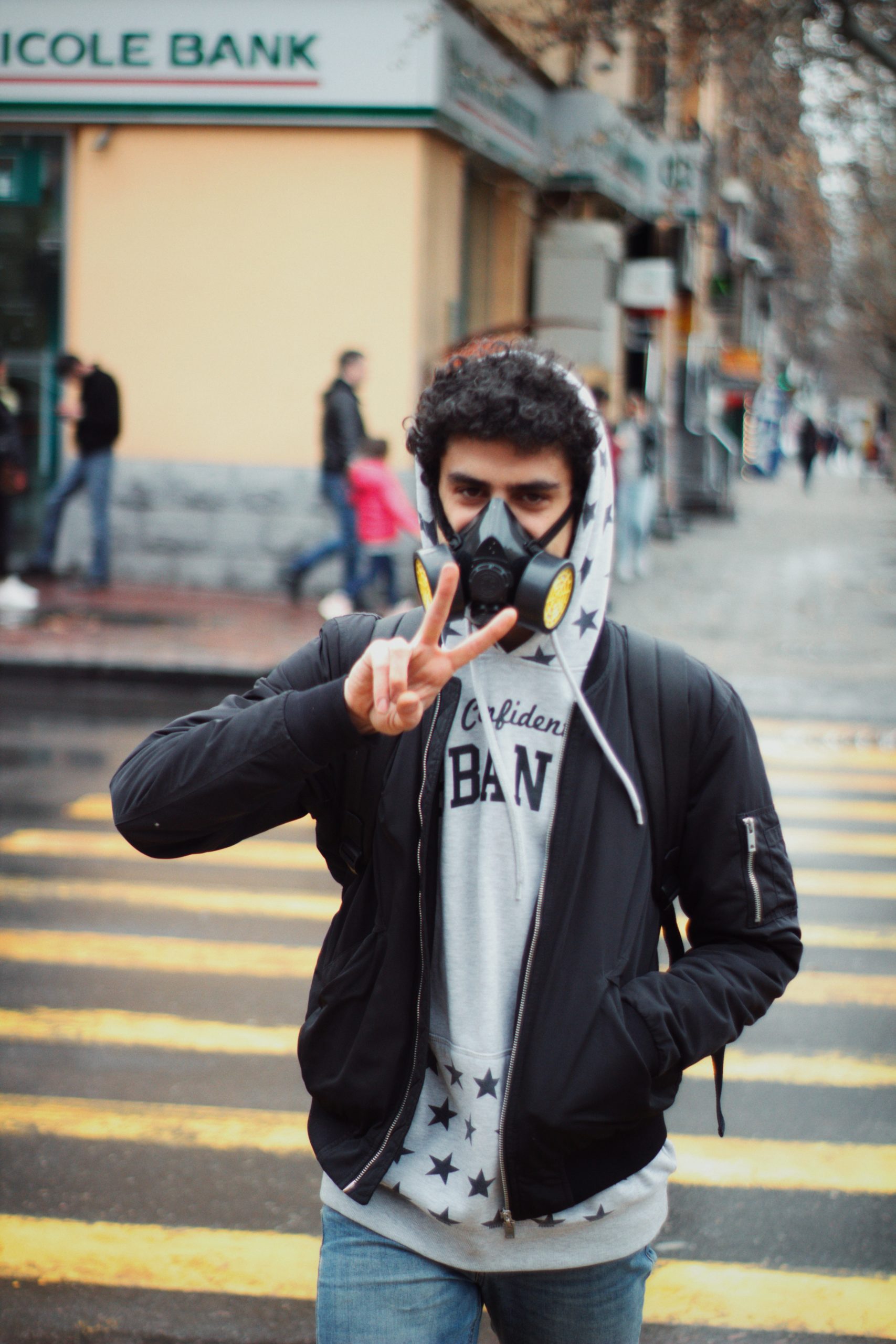Difficult times have a way of bringing out the worst, and the best, in people. As the world grapples with the fast-spreading COVID-19 pandemic, governments are struggling to contain the virus, health systems are coming under immense pressure and national economies face the risk of recession. The virus is also reshaping the way we live and work and providing a window into our societies.
In Australia, the UK and, increasingly the US, panic buying has taken hold leading to rows of empty supermarket shelves and serious shortages in essential items. There have been reports in several countries about people stealing hand sanitizer, masks and other medical supplies from hospitals and clinics. This hysterical reaction has adversely affected the most vulnerable segments of society, such as the elderly, the disabled and the chronically ill, raising questions about social and individual responsibility in this time of crisis.

This sort of panic buying hasn’t hit Armenia yet – at least not to the same extent. However, we have had our fair share of debate regarding the importance of social responsibility in preserving public health, particularly following the outbreak in Etchmiadzin, when an infected woman arriving from Italy attended an engagement party, despite having a fever. Authorities have since revealed that when contacted about her health after her return flight, the woman insisted she was doing well and reportedly refused to get tested. There are at least 78 confirmed cases of COVID-19 in Armenia, of which 38 can be traced back to the outbreak in Etchmiadzin.
This rapid spike in the number of confirmed cases led the government to declare a state of emergency in the country starting on Monday, imposing limitations on travel to Armenia, banning public gatherings and maintaining the closure of all educational institutions. In his address to the National Assembly regarding this matter, Prime Minister Nikol Pashinyan said, “Unfortunately, in the last 20 days we have witnessed instances when our dear compatriots have not always followed the behavioral guidelines recommended by the Ministry of Health and the government, aimed at securing their own safety, as well the safety of their close ones and those surrounding them.”
However, the government is not yet resorting to some of the tougher measures adopted by European countries, including the closure of businesses and strict stay-at-home orders. It is, instead, appealing to people’s sense of responsibility in trying to contain the spread of the virus.
This was a point that the Prime Minister made repeatedly in a Facebook Live on the first full day of the state of emergency. The PM explained that the government’s strategy thus far has been to trace down all people who have come into contact with confirmed cases and place them under government-supervised quarantine for a period of 14 days. Hinting at a possible shift in this strategy, he indicated that this measure would not be required if people demonstrated a greater sense of social and individual responsibility. “This is a good opportunity for us to change our views towards rules, laws, coexistence and social responsibility.”
Whether the government’s measures to curtail the further spread of coronavirus in Armenia will be successful remains to be seen. At the same time, this will be a litmus test of the extent to which the concepts of social responsibility and good citizenship have taken root in Armenian society.

In recent years, Armenia’s population, especially its youth, have taken to the streets many times under the slogan “We are the owners of our country” (Menk enk dere mer yergrin). That sense of ownership and responsibility towards the country has perhaps not fully translated into good citizenship practices in everyday life, a sense of belonging to a community and working towards the collective good. This can be seen in the security guard at the public park puffing away at his cigarette underneath a “No Smoking” sign, in people who park their cars in front of ramps with zero realization that they are blocking access to people with special needs, and in drivers who break basic road safety rules on a daily basis.
Of course, good citizenship does not come about in a day. It is an important part of the broader practice of nation-building, constructed and shaped through years of civic activity and education. This global pandemic can be an important step on this path and will hopefully help us forge a more responsible, more aware society.
No matter how the coming weeks play out in Armenia, we will come out of this with many lessons learned, and therefore, stronger and more resilient. In the meantime, at least some of us in Armenia are staying home and hoping for the best!


Be the first to comment